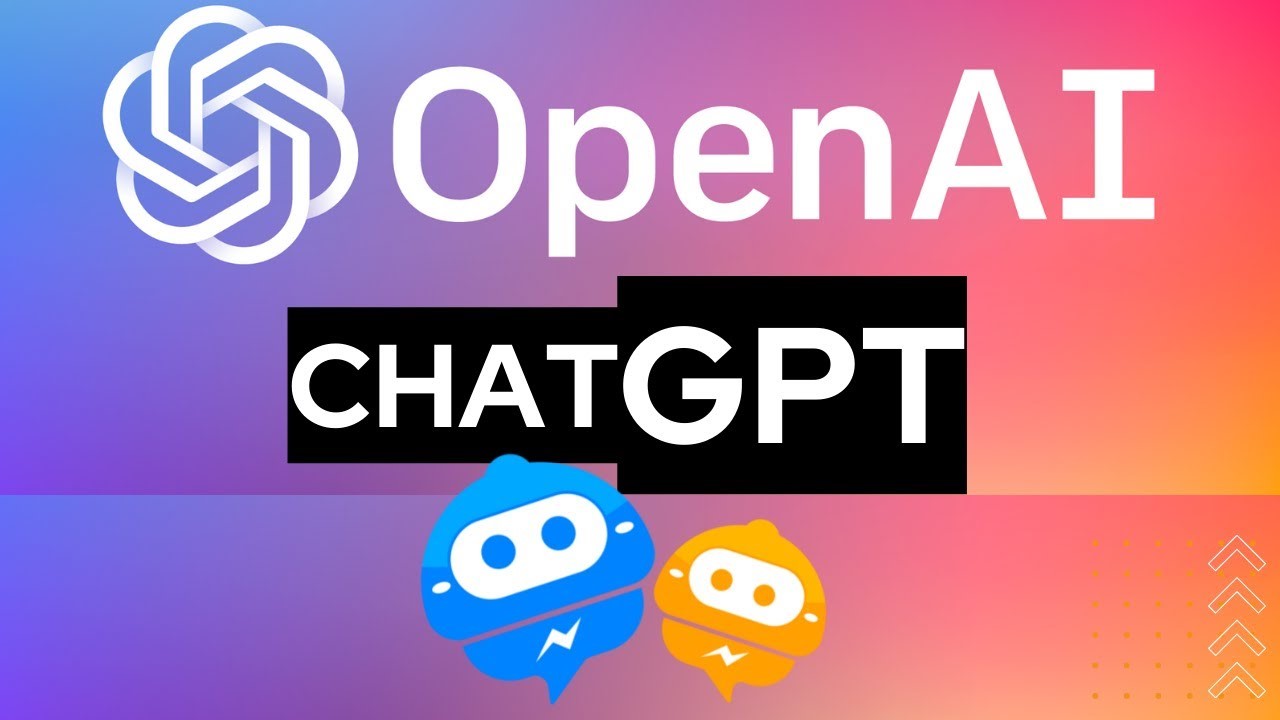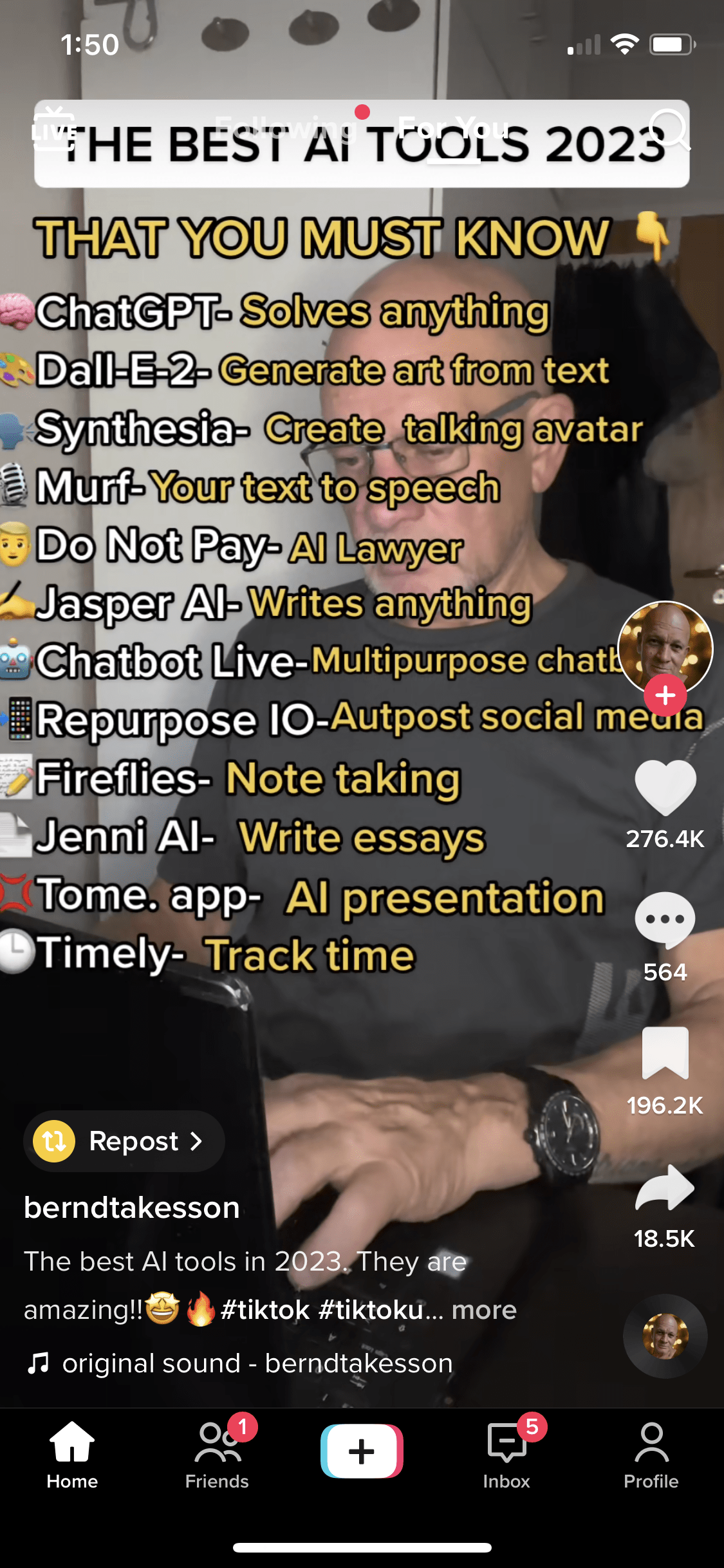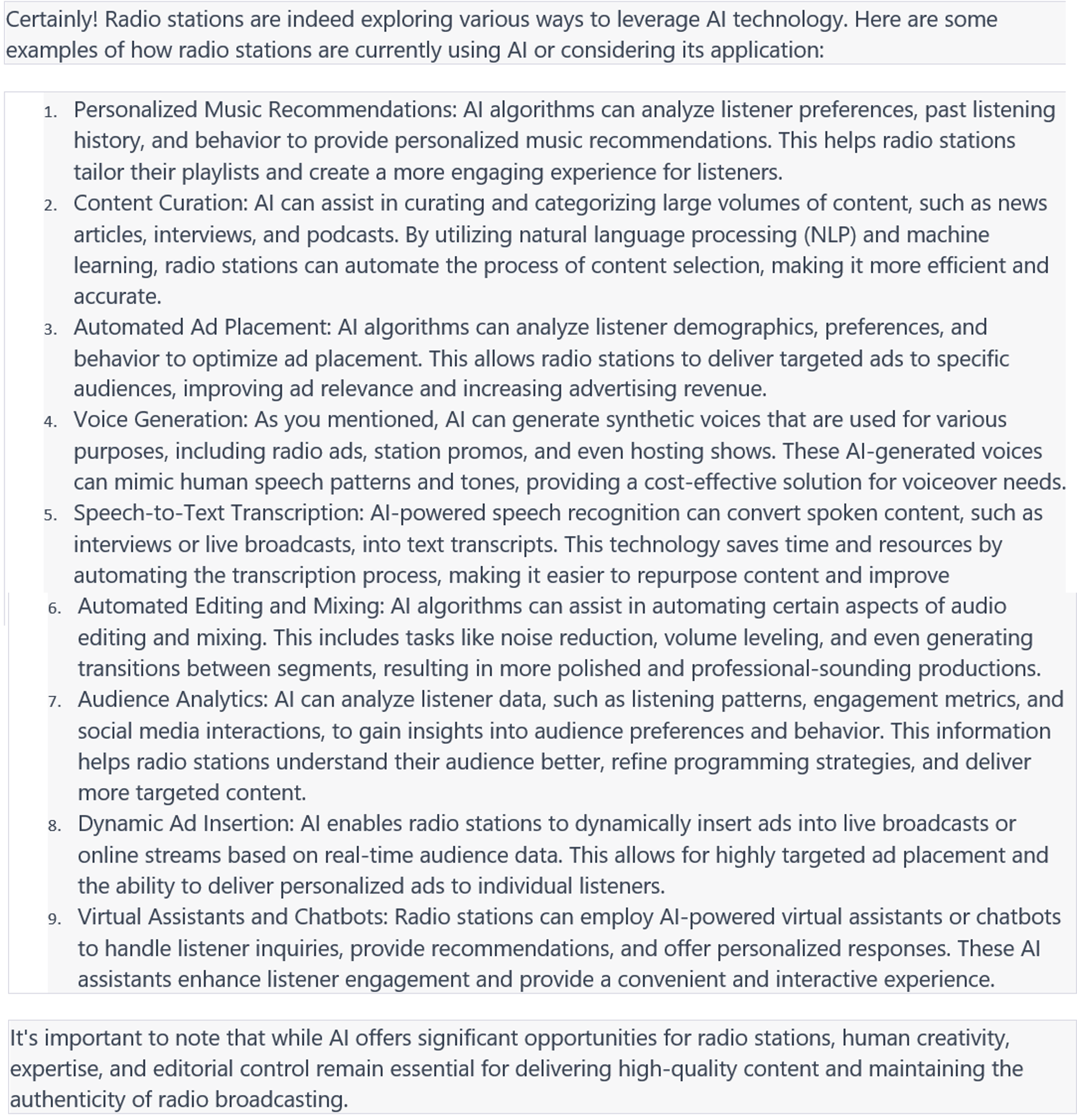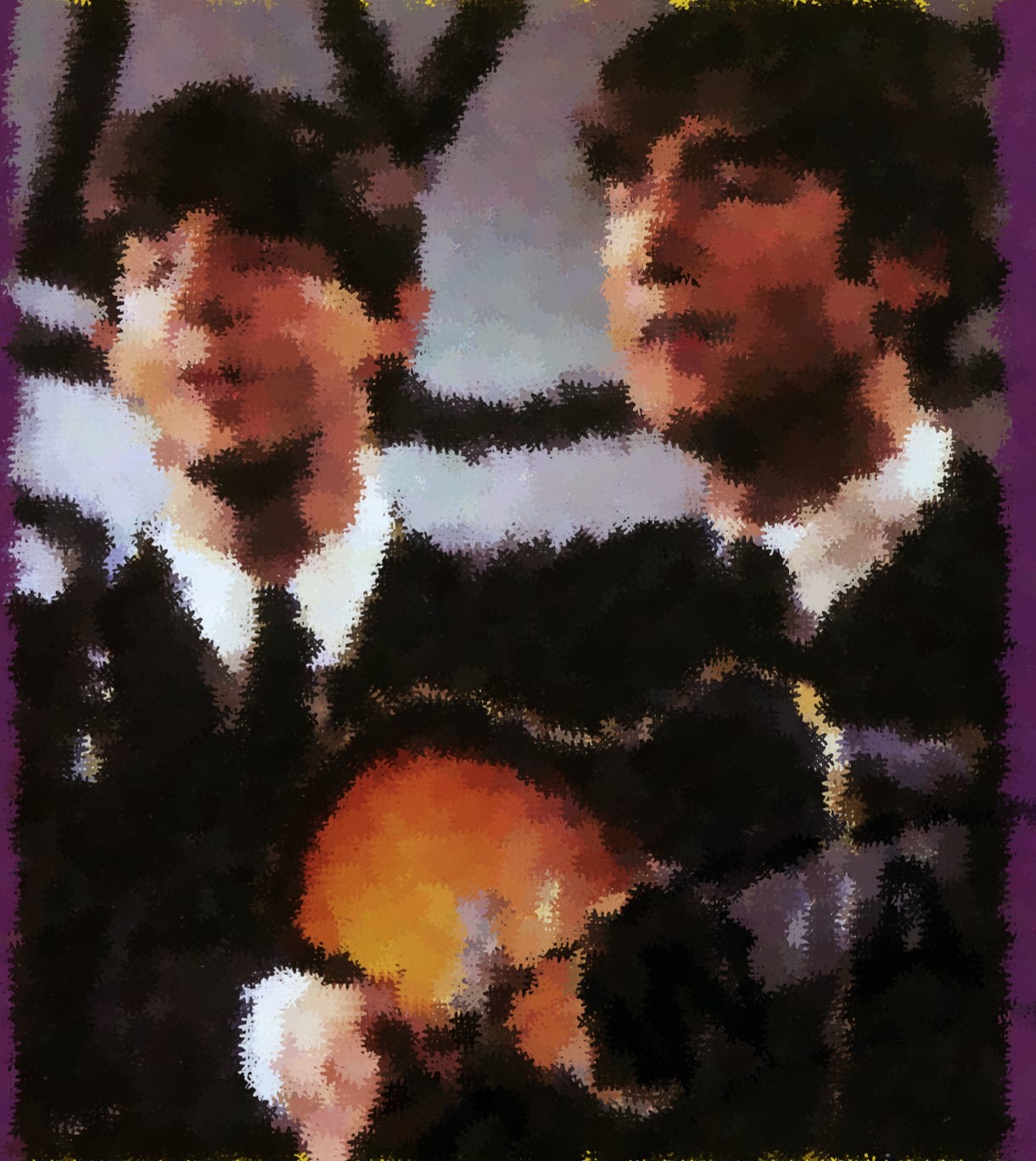
You’re excused if you’re feeling just a bit overwhelmed by all this A.I. talk. We’ve never seen a tech phenomenon – including smartphones, social media, or the Internet itself – take off with so much momentum and attendant buzz.
And like any phenomenon that goes viral like generative A.I. has in just the past few months, you’ve already read seemingly contradictory reports, analyses, and research studies about the good, the bad, and the still unknown about this burgeoning technology.
On the one hand, it may take you job (and then a list of job categories follows). On the other, it will save you countless hours and make you more efficient.
On the one hand, iHeart has banned the use of public A.I. chatbots. In a memo to staff sent just a couple weeks ago, Bob Pittman made his company’s policy clear:
“Although AI, including ChatGPT and other ‘conversational’ AIs, can be enormously helpful and truly transformative, we want to be smart about how we implement these tools to protect ourselves, our partners, our company’s information and our user data. For example, if you’re uploading iHeart information to an AI platform (like ChatGPT), it will effectively train that AI so that anyone – even our competitors – can use it, including all our competitive, proprietary information.”
Of course, the company will continue to develop its own generative A.I. solutions and strategies.
Then there’s Elon Musk and Bill Gates, two of the strangest techie bedfellows. While they may differ on many points, they share a common fear of the rampant use of generative A.I.
And while a slew of experts signed a letter calling for a 6-month “pause” on A.I. development back in March of this year, the technology continues to roar along unabated. The A.I. toothpaste is way out of the tube.
The fact is, generative A.I. is a vast unknown. Books, dissertations, and white papers are being written as we speak. Sadly, many will contradict each other. Tomorrow Loyd Ford’s podcast, “The Encouragers: Radio Rally,” will drop, featuring a wide open discussion featuring me and Mike McVay taking our best stab at A.I. It’s an entertaining conversation to be sure, but it’s also the first inning for this technology, making me wonder what this podcast will sound like in a year. Or six months from now.
Just when we’ve gotten past the scary unknown of COVID (remember what most of 2020 felt like?), now we’re immersed once again in a maelstrom of change that no one really understands. You’re excused if your head is exploding.

Will you lose your job? Will you lose your mind? Will you figure it out and adapt? Will you be rolled over by this new technology? Those are the questions you might be asking, whether you’re on the corporate team for a radio broadcasting company, in the air studio, or working out of the station sales cubicles.
You can occupy your time by wringing your hands, worrying about where A.I. is headed. Or you can suck it up and take control of your situation. Obviously, I’m a fan of the latter. You might end up reinventing yourself and your career. Or you might end up learning enough to be dangerous in an adjacent (or totally different field). While none of us know precisely where this is headed, much less where it’s going to end up. But it’s safe to say we’re at the precipice of a moment in time that looks very much like things will never be the same again.
To make sure you not only get to the other side, but actually becoming a player in the new world of media information and entertainment, you’re going to need to enlist every resource in your arsenal. That means reading everything you can get your hands on. And trying every application of A.I. you bump into along the way, With eyes wide open, you can make yourself something of an A.I. expert, combining your old school media knowledge with a new technology that so many are trying to understand and harness.
arsenal. That means reading everything you can get your hands on. And trying every application of A.I. you bump into along the way, With eyes wide open, you can make yourself something of an A.I. expert, combining your old school media knowledge with a new technology that so many are trying to understand and harness.
In a single post, I cannot explain all there is to know about A.I. because even its developers are still in the process of figuring out what it is. Let’s go right to Sam Altman, CEO of OpenAI, the company that invented ChatGPT. Listening to Sam Altman talk about this technology is enlightening, if nothing else to get a sense for how the inventor is struggling to understand his baby.
I invite you to listen to him,, clearly more thoughtful than other tech geniuses, namely Elon Musk and Mark Zuckerberg. I may live to eat these words, Altman comes off as thoughtful and even transparent about this technology. You can lean a lot about ChatGPT by just listening to Altman talk about it. The video below was on TikTok, but you can find him in lots of different places.
@ai_tok Sam Altman talks about GPT-4 on the Lex Fridman Podcast #ai #artificalintelligence #gpt4 #ceo #openai #lexfridman #lexfridmanclips #samaltman #chatgpt #aiclips #podcast ♬ original sound – AiTok
Perhaps, that gives you a better idea where this technology comes from and why it matters.
Speaking of TikTok, some of the most helpful hints and hacks are all over this platform. If you’ve somehow avoided this social phenomenon up to this point, dive in to see what’s going on. Simply searching for “A.I.” or “ChatGPT” will turn up all sorts of useful resources.
Like the one below. It’s an important reminder ChatGPT is just one of many different applications that utilizes this intuitive technology. I ran across this post that offers up a nice list of things to try in the space. As you look to learn more about its capabilities, these are worth trying.

And sometimes, it’s smart to go right to the source. Bill Jacobs recently considered how A.I. could be best utilized in radio – and put the algorithm to the test. He took the easy (and smart) way out, and simply threw the question at ChatGPT, unleashing it power to create on the spot:

Of course, this is just the tip of the A.I. iceberg. All these ideas lead to others, especially those based on copywriting, prep, and brainstorming – all of which can be handled in a keystroke by this amazing technology.
And then there’s the question of whether this technology will be used responsibly – especially by those in and out of the music industry. While there have been virtual collabs already (remember Drake and The Weeknd?), the stakes have been raised by none other than Sir Paul McCartney.
used responsibly – especially by those in and out of the music industry. While there have been virtual collabs already (remember Drake and The Weeknd?), the stakes have been raised by none other than Sir Paul McCartney.
In a breaking story that sounds like it’s from the Onion, BBC News reports that a “final Beatles record” will be released this year, channeling A.I. to recreate John Lennon’s voice from an old demo. The Beeb reports the song will be “Now and Then” from a 1978 Lennon tune.
And you thought holograms were weird. So, now let’s talk about the morality of THIS.
Finally, a word for the air personalities in our midst – the players in our story who perhaps most need to be proactive with A.I. Clearly, the fears that many have expressed these past many months are palpable and well-founded. I have great empathy for you, but I also see some amazing upside if you stay calm and get your creative juices flowing.
Let’s get something straight at the outset:
You can and likely will be replaced IF your show is predictable, by the book, generic, robotic – and yes, all the other things robots are famous for. And it’s true you may or may not be in a position to do something about it, depending on who signs your paycheck.
If you have the running room to bring something more to your show than “that this was/this is” and the usual mind-numbing formattics, start thinking and talking about the world outside your studio. You don’t need ChatGPT for that.
Be observational, be human, be real, be empathetic. Talk about things people talk about. Reflect your local market and its vibe. Who are the people in your audience’s orbit that matter?
And think about how A.I. technology might help you do “something else” with your skills. I’m expecting this will be a topic at August’s Morning Show Boot Camp in Dallas.
To that point, a recent story in Yahoo! News is testament to both personality creativity and audacity. A “social media influencer” created her A.I. persona. For $1 a minute, she’ll chat with you, hang with you, and even be your girlfriend.

Caryn Marjorie took off on Snapchat. And she features her own chatbot – CarynAI – which she describes as a “virtual girlfriend.” You can visit her website where she says it’s required more than hours of development and design time to pull off this feat of A.I. magic.
But here’s the interesting part. Caryn already has an audience – just like a radio personality does. Yes, hers is 2 million strong on Snapchat alone. But size is relative.
According to a story in Fortune, the bot will allow her to chat and interact with thousands (or millions) of her fans and followers – something she cannot do now.
And here’s the money line that will make every DJ, host, and personality breathe a sigh of relief:
“CarynAI will never replace me. CarynAI is simply just an extension of me, an extension of consciousness.”
 Now, she’s talking. And think about those “emotional benefits” of radio listening we talk about each year in Techsurvey – qualities like companionship, mood elevation, and escape. That’s what Caryn Marjorie’s A.I. alter-ego is designed to do:
Now, she’s talking. And think about those “emotional benefits” of radio listening we talk about each year in Techsurvey – qualities like companionship, mood elevation, and escape. That’s what Caryn Marjorie’s A.I. alter-ego is designed to do:
“Whether you need somebody to be comforting or loving, or you just want to rant about something that happened at school or at work, CarynAI will always be there for you.”
The bot is still in beta, but Caryn thinks it has the potential to generate $5 million a month in revenue. Laugh if you will, but even if you drop a couple zeros, that’s a lot of money in passive income revolving around a personality.
And it begs the question: What can A.I. technology do for you? How can you creatively harness the technology to create smart and profitable extensions of your personality?
Rather than run from it, thinking about ways to make it enhance and even extend your career, long after your last contract expires.
Now that’s something to cheer about.
Loyd Ford’s “The Encouragers” podcast drops tomorrow. I join Mike McVay to talk the ChatGPT talk. Keep an ear out for it. – FJ
- Under The Influence(rs) - March 14, 2025
- Radio’s Dilemma: Trump Or Get Trumped - March 13, 2025
- What About Bob? - March 12, 2025




Radio and popular music are group experiences! People keep forgetting the importance of timelyness. It’s the difference between “I like that” and “WOW!” AI probably will never understand context well enough fast enough. Hopefully we’ll return to songs written weeks ago instead of years ago.
I’ve always been enthralled with potentially industry changing technology. FM vs. AM. FM stereo. AM stereo. HD radio. Listener Driven Radio. A lot of this technology has gone by the wayside. Now it’s AI. This may be the life-(and industry) changing technology that will change the world, or it may be another “box” sitting in the basement. It depends (of course) on how its used, and from what we’ve seen lately, it’s got a way to go to do that one thing that radio (and TV and movies) should focus in on. Entertaining the end user. Are we forgetting that in the midst of all of this? I hope not.
Dave, there’s no doubt that tech can get us ahead of our skis – especially as it pertains to making sure we’re always entertaining (or informing). Thanks for keeping us honest.
Watch for the blog on Monday. I’ll have an exclusive in-depth convo with the Portland, OR that’s pioneering A.I. on the radio dial. The technology is fascinating, scary, and comes packed with lots of unknowns. Once again, a great time to be alive and working in radio.